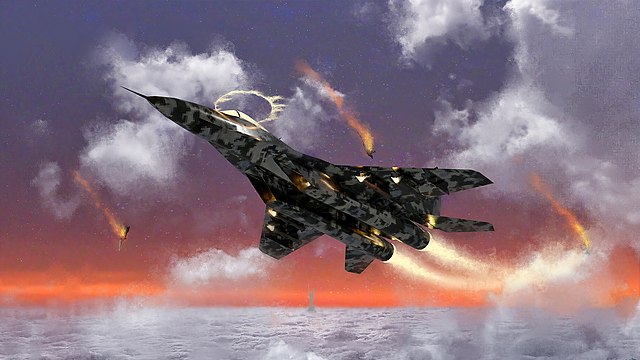Audiovisual Narratives: The Social Media War

Ella Buckley reflects on the nature of both the social media and broadcast news narratives surrounding Russian President Vladimir Putin’s recent invasion of Ukraine.
In the 1960s, uncensored images of the effects of napalm and chemical agents deployed by the American military were all over televisions around the world, causing outrage and mass protests as civilians watched the atrocities of the Vietnam War from the comfort of their own homes.
Today, with mobile phones and social media keeping everyone around the world connected 24 hours a day, seven days a week, there has come an overwhelming amount of footage of Russian military forces in Ukraine since their invasion began just over two weeks ago. Now, our information is not just coming from broadcast news coverage but also social media outlets such as YouTube and TikTok.
Social media has changed the way we interact with news, as we can see real-time live streams coming from Ukraine and camera footage from phones being collated as evidence of Russia’s war crimes. Just as Vietnam was considered the first ‘Television War’, we are now witnessing the first ‘Social Media War’.
Much information on social media is not being fact-checked
Though this multitude of new information sources has its benefits, as those who may not have previously switched into traditional news coverage become more aware of current events in Ukraine and testimonial accounts from Ukrainians who have had to flee their country have been coming in thick and fast, there are concerns with using social media as a main source of information.
Much information on social media is not being fact-checked. Take, for example, the legend of the ‘Ghost of Kyiv’: the story of a Ukrainian fighter jet purported to have shot down six Russian jets within the first 30 hours of the Russian invasion. Though an inspiring narrative that has boosted the morale of the Ukrainian people in a time when it is much needed, the story is most likely false and seems to have been supplemented with footage taken from a video game.
Alongside the false narratives on social media, though, another far more pressing issue is the suppression of narratives showing Russian citizens the horrors of Putin’s invasion. For many Russians, the only source of information is now state-controlled television and news: propaganda that praises and justifies the so-called ‘special military operation’.
Independent news outlets in Russia, many that were bold and brave enough to voice their criticism of the Russian Government, have been banned or suspended, preventing them from exposing the true catastrophes occurring within Ukraine. International media sources have also been banned across the country, with the BBC resorting to posting links for Russian and Ukrainian-language news articles on their dark-web mirror site.
It is day 16 of the invasion at the time of writing and there is no real sense as to what to expect next
Opposition to the war – in the form of publishing information about it deemed to be “false” – can now result in up to 15 years in prison. Thousands of Russians are currently being detained in prisons across the country due to protests and many unfortunately don’t have the option to voice their concerns under the threat of jail time. The country and its people have effectively been isolated from the rest of the world.
It is day 16 of the invasion at the time of writing and there is no real sense as to what to expect next. The news is constantly updated, detailing the horrors of shelling, attacks on hospitals and continued sanctions against Russia. The constant bombardment of news can easily become overwhelming and, at times, it is hard not to feel that in our efforts to stay up-to-date we’ve all just reverted to ‘doom-scrolling’.
However, as Russia continues to suppress the media, the importance of the role both of social media and the news has only increased. Whether it’s the regular updates from Ukrainian president Volodymyr Zelenskyy addressing the citizens of his country as he defiantly remains in the country’s capital, others using their digital voices to educate or worldwide appeals for humanitarian aid wherein donation is as easy as a click of a button, the modern ubiquity of digital technology and internet access has been vital.
Many of us will never have to face the horrors the people of Ukraine have had to endure for the past two weeks, so the most important things we can currently do are to stay informed, educate and donate.


